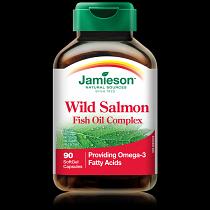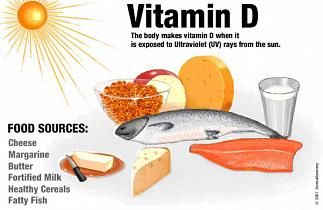Anti-Aging: Take Vitamin D and Fish Oil for Heart Health
While research on multivitamins for preventing heart disease is mixed, science does stand behind these two supplements. "The only dietary supplement consistently shown in randomized clinical trials to work against cardiac death is fish oil," says Dariush Mozaffarian, MD, DrPH, an assistant professor medicine at Harvard Medical School. Omega-3 fatty acids stabilize the heart's electrical system, lower blood pressure and triglycerides, slow arterial plaque build-up, and ease systemic inflammation. Fish oil was more successful than statins at preventing death in heart failure patients, according to a recent Italian study. Vitamin D boasts a wide range of health benefits toward an anti-aging holistic health approach; heart health among them. Recent studies show that too-little amounts can raise the risk of peripheral arterial disease by 80% and increase the odds of developing diabetes (a known heart disease risk factor). The amazing benefits of fish oil are virtually all related to their ability to decrease silent inflammation in the body. The benefits include: 1. Decreased risk of heart disease, which is basically an inflammatory disorder 2. Decreased risk of diabetes, by improving the body's sensitivity to insulin, so lower levels are required to do their job. 3. Decreased risk of many forms of cancer 4. Decreased risk of Alzheimer's disease 5. Decreased risk of autoimmune diseases like rheumatoid arthritis, multiple sclerosis and lupus. 6. Greater longevity 7. Improved emotional control 8. Greater mental acuity 9. Improved physical performance A major new European study suggests that Vitamin D supplements may be among the most important anti-aging therapies for the brain. The European Male Aging Study, which focused on more than 3300 men between 40 and 80 years old, showed that low levels of the vitamin are definitely associated with slower mental processing, reduced cognitive function, and concentration problems. The study authors, reporting their results in the Journal of Neurology, Neurosurgery & Psychiatry, said that while high levels of the vitamin correlated with high scores on cognitive function tests, more clinical tests are needed to fully interpret their findings. Though the study clearly demonstrated the correlation between D vitamin levels and cognitive function/processing speed, the findings stopped short of identifying the vitamin as a treatment for aging brains. Instead, the researchers noted that the association could be simply a “risk marker”, indicating a risk for cognitive decline. The study concluded that in light of the findings and the fact that vitamin D deficiency is common among older adults, more research is warranted to determine whether Vitamin D supplements could aid in minimizing age-related cognitive decline. The European study is the latest of many research projects to investigate the association between levels of D vitamin – often referred to as the sunshine vitamin because sun exposure triggers its production in the body – and brain health. The vitamin is known to play a significant role in brain biochemistry. Nuclear receptors for the vitamin exist in the brain, and it is involved in the biosynthesis of neurotrophins, protiens responsible for neuron growth and development. Because neurotrophins can also repair damaged neurons, some believe they have potential for use in reversing age-related brain disorders including Alzheimer’s Disease. Tests on the effectiveness of vitamin D supplements in Alzheimer’s treatment are ongoing. In addition, recent studies have revealed that insufficient levels of the vitamin are strongly correlated with incidence of depression. Internet site references:
Comments
There are 0 comments on this post

















